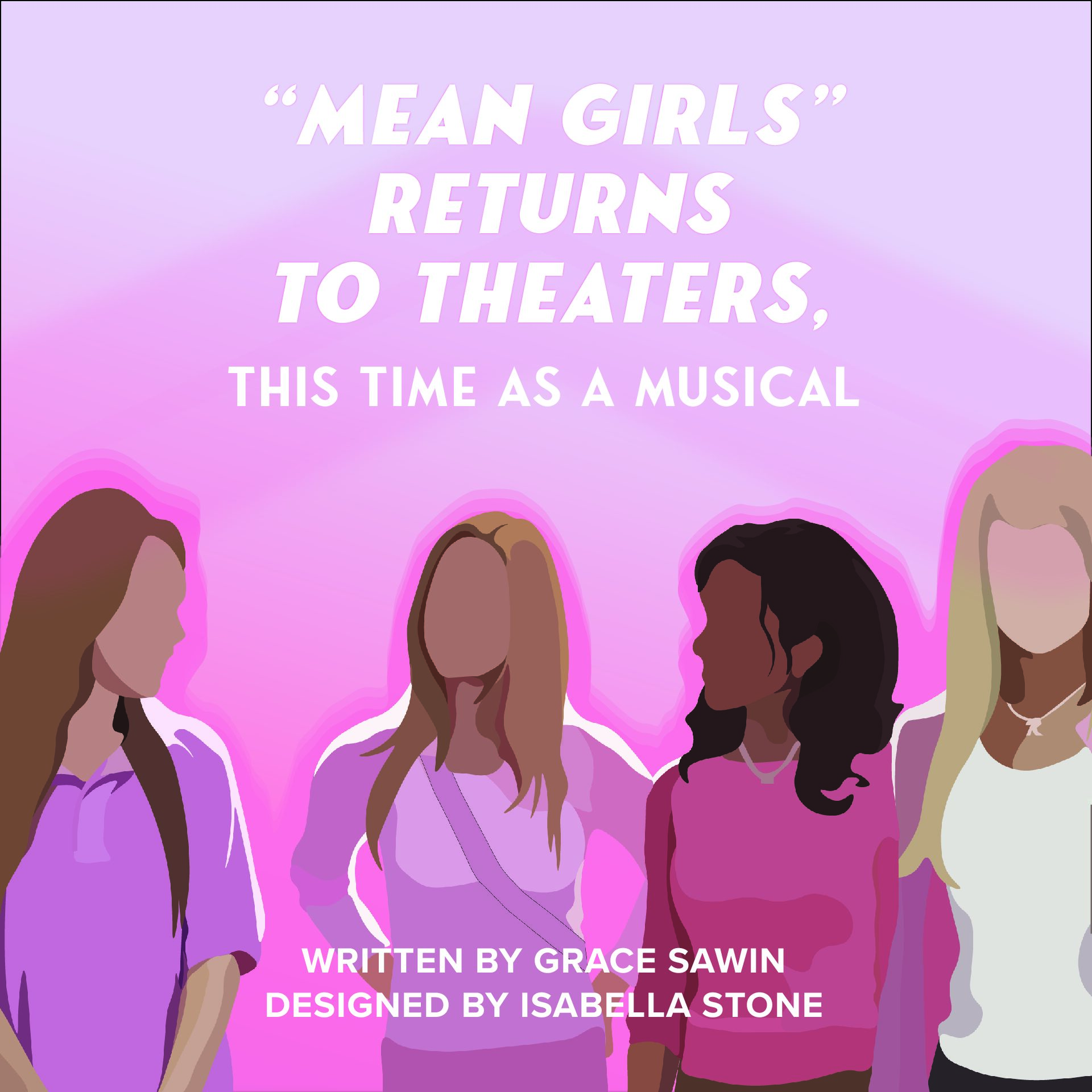
Very few teen movies rival the cultural impact of Tina Fey’s “Mean Girls.” The movie follows Cady Heron, who, after being homeschooled for most of her life, learns to navigate drama, crushes and deadly school buses, elements that characterize the traditional American high school experience. Following its 2004 release, the film quickly became a cult classic.
“Mean Girls” was adapted to the Broadway stage in 2018; however, its run was cut short due to the pandemic. Now, the movie will return to the big screen in January, this time inspired by the musical.
The adaptation will feature Jenna Fischer, known for her role as Pam Beesly in “The Office” and Chris Briney, who was more recently popularized for his role in “The Summer I Turned Pretty.” Tina Fey will also return to her role as Ms. Norbury, as well as Renee Rapp, who played Regina in the Broadway production.
Rapp’s growing following in particular has garnered significant traction for the movie. Online, she’s known for her unbridled, quick-witted sense of humor that targets a primarily queer audience. Her content is refreshing and relatable — the mark of a successful influencer. However, that was never her intention. A powerful vocalist, Rapp has separated herself from her peers; she began with the intention of performing and making music and then gained followers, not the other way around. Her popularity is an executive’s dream, making the movie highly anticipated.
So far, only the first trailer has been released, which has faced some criticism. The trailer seemed to forget it was advertising a musical, showcasing only glimpses of choreography and no singing. Instead, it featured some of the movie’s most iconic scenes layered with Olivia Rodrigo’s “Get Him Back.” This marketing strategy is not new for movie musicals, which have historically performed poorly. However, featuring only subtle hints of musical elements makes the project seem like an unnecessary remake.
“No Mean Girls movie can replace the Mean Girls 2004. It was, is, and will always be a classic. Period,” read the top comment under the trailer posted to Paramount’s official YouTube channel. Although the discourse surrounding the release is divided, the sentiment that the remake is no more than a cash grab is strong.
Many companies are guilty of this practice — recreating old movies when ideas have seemingly run out. Disney is likely the worst offender, releasing live-action versions of classics years after the original release. When altering a franchise viewers hold dear to their hearts, opinions tend to be vocal. Many would argue there is a right way to approach such alterations, although there are no step-by-step instructions on how to successfully garner support.
Recently, this phenomenon played out in real time following the release of a prequel to the beloved “Hunger Games” series: “The Hunger Games: The Ballad of Songbirds and Snakes.” The performance of this new addition was unprecedented. Leading up to the premiere, there was incredibly mixed support — many arguing that a classic should stay untouched, similar to complaints against “Mean Girls.” However, after its first week in theaters, the movie was not only met with overwhelmingly positive reactions from fans, but it also produced over $200 million at the box office, demonstrating the performance of a production won’t be evident until release day.
In the meantime, the team behind “Mean Girls” is attempting to cater to a distinctly Gen Z audience through the integration of social media culture, the use of popular music and a wardrobe littered with trendy clothing. This strategy is on par with a larger pattern of companies dragging out personified elements of Gen Z culture to appeal to younger audiences. Most notably, TikTok has become the fallback, its existence synonymous with young people. Flashy filters and dances are just some of the adjustments present in the trailer.
Yet, this strategy seems to be working. Criticism may be just what this remake needs, as a high volume of online discourse has a tendency to produce a strong turnout. Beyond genuine interest, people want to purchase tickets to form their own opinions. For now, only time will tell if “Mean Girls” can gain the respect of the franchise’s loyalists and successfully target a new generation of fans, or if it will be labeled as a poor attempt at a remake.